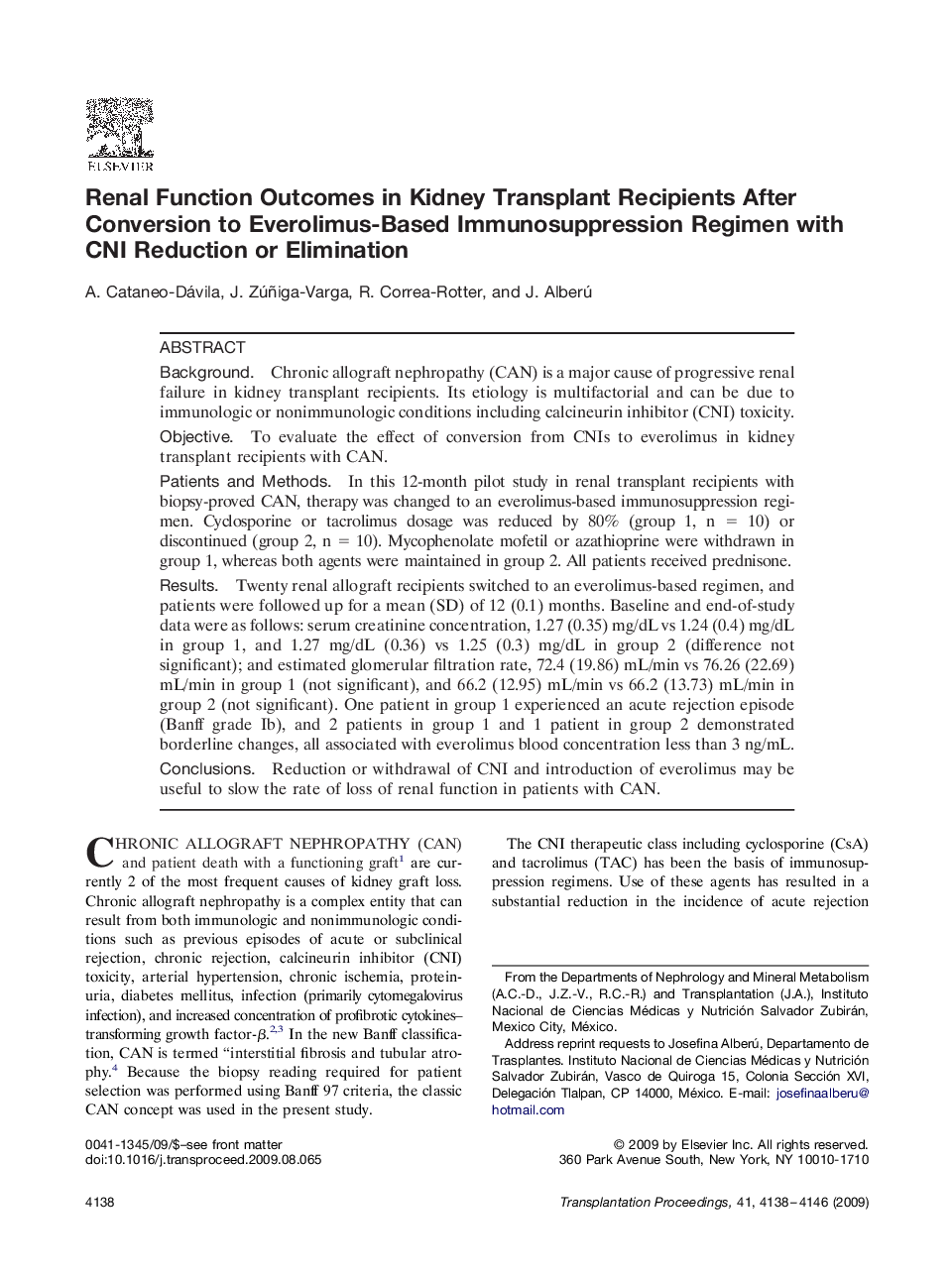| Article ID | Journal | Published Year | Pages | File Type |
|---|---|---|---|---|
| 4258475 | Transplantation Proceedings | 2009 | 9 Pages |
BackgroundChronic allograft nephropathy (CAN) is a major cause of progressive renal failure in kidney transplant recipients. Its etiology is multifactorial and can be due to immunologic or nonimmunologic conditions including calcineurin inhibitor (CNI) toxicity.ObjectiveTo evaluate the effect of conversion from CNIs to everolimus in kidney transplant recipients with CAN.Patients and MethodsIn this 12-month pilot study in renal transplant recipients with biopsy-proved CAN, therapy was changed to an everolimus-based immunosuppression regimen. Cyclosporine or tacrolimus dosage was reduced by 80% (group 1, n = 10) or discontinued (group 2, n = 10). Mycophenolate mofetil or azathioprine were withdrawn in group 1, whereas both agents were maintained in group 2. All patients received prednisone.ResultsTwenty renal allograft recipients switched to an everolimus-based regimen, and patients were followed up for a mean (SD) of 12 (0.1) months. Baseline and end-of-study data were as follows: serum creatinine concentration, 1.27 (0.35) mg/dL vs 1.24 (0.4) mg/dL in group 1, and 1.27 mg/dL (0.36) vs 1.25 (0.3) mg/dL in group 2 (difference not significant); and estimated glomerular filtration rate, 72.4 (19.86) mL/min vs 76.26 (22.69) mL/min in group 1 (not significant), and 66.2 (12.95) mL/min vs 66.2 (13.73) mL/min in group 2 (not significant). One patient in group 1 experienced an acute rejection episode (Banff grade Ib), and 2 patients in group 1 and 1 patient in group 2 demonstrated borderline changes, all associated with everolimus blood concentration less than 3 ng/mL.ConclusionsReduction or withdrawal of CNI and introduction of everolimus may be useful to slow the rate of loss of renal function in patients with CAN.
